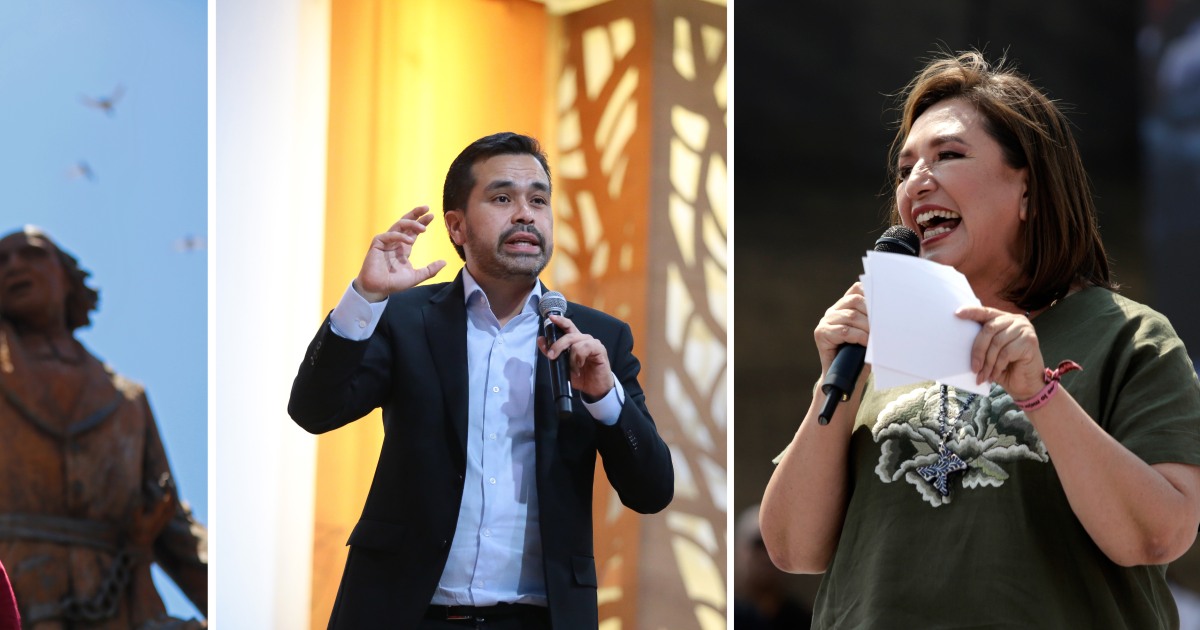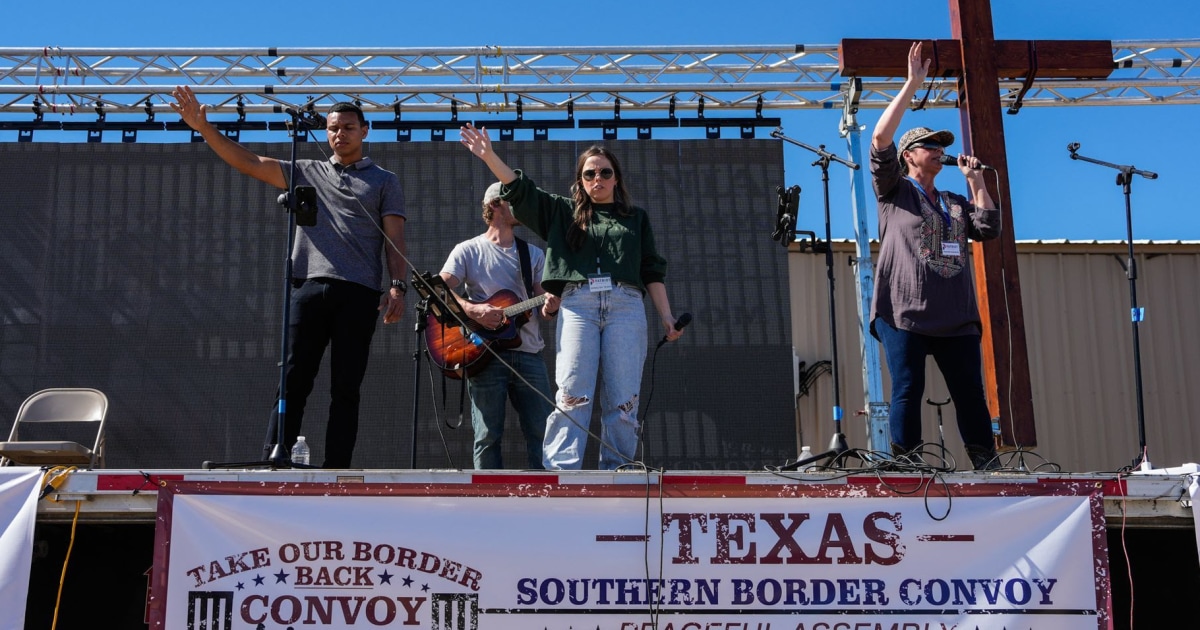Felipe Calderón, former president of Mexico, in 2015 Leigh Vogel
There will be new political parties, but with many familiar faces.
This is how the process for the formations that will compete for the first time in the 2021 elections in Mexico reached the final stretch this Friday.
The council of the National Electoral Institute is expected to approve the registration of two new organizations, marking the return of figures such as former president Felipe Calderón and his wife, former presidential candidate Margarita Zavala, with México Libre.
The ultra-conservative Social Encounter Party (PES) also reappears, although under another name, which did not reach the necessary vote threshold in 2018 despite allying itself with Andrés Manuel López Obrador and is linked to evangelical groups.
Those that are emerging as the big losers are two organizations linked to Elba Esther Gordillo, former leader of the National Union of Education Workers (SNTE): Progressive Social Networks, of her son-in-law Fernando González, and Grupo Social Promotor de México.
The electoral referee has questioned their registration after detecting more than 24 million pesos (one million dollars) of irregular financing from the SNTE for both associations.
Social Force for Mexico, of the union leader and alternate senator Pedro Haces Barba, has also stayed on the shore.
The arrival of the new parties outlines a new electoral board for the next year's voting, where more than 2,000 public offices are disputed and which are anticipated as a kind of referendum with two main poles: the parties in favor and against the project. by López Obrador.
Morena, the government party, arrives as the strongest party, although it is fighting an internal battle that threatens to weigh down its aspirations in the first federal election since it came to power.
It will also be a test for the conservative National Action Party (PAN), the first opposition formation, which will measure forces with the split led by Calderón and Zavala, which abandoned its independent candidacy in the last presidential elections.
The return of Calderón breaks an unwritten rule of Mexican politics, where it is not common for former presidents to resume their partisan careers after completing their term, even less to found another political party, points out Rodián Rangel, professor at the National Autonomous University of Mexico ( UNAM).
"The 2018 elections were a
tsunami
and there is a political class from the past that does not want to leave and that seeks to maintain its political weight, either because it feels that its survival is at stake, because it seeks to resurface or because of a frank obsession with power", Rangel points out.
For Sebastián Garrido, an academic at the Center for Economic Research and Teaching, it is not surprising that old acquaintances are those who occupy the new spaces for political participation.
"The current parties have made the entrance door for new formations smaller and smaller," he says.
The aspirants had, for example, to prepare 200 district assemblies with 300 members in each one or 20 state assemblies with 3,000 members in each, until amassing 0.26% of the electoral roll.
"It is a very complex task, you need resources, contacts and prior knowledge, something that only career politicians have," he adds.
For example, all the five associations that went the furthest in the process had ties to established or experienced political parties.
One of the locks faced by the new parties is that they have to exceed a threshold of 3% of the votes in the next national election to maintain their registration and they will not be able to ally themselves with others to agglomerate the necessary votes.
The Encuentro Solidario Party, the new denomination of the ultraconservative PES, for example, will not be able to seek another alliance with López Obrador, a challenge that it already overcame in 2015, its first federal vote.
"In the Latin American context, the evangelical parties have had a significant penetration, although in Mexico the PES has struggled a lot to be a national force and remains a regional movement, in the most conservative areas of the country," says Rangel.
Newcomers will have fewer campaign resources than their established rivals and will have to contend with abstentionism, which historically rises in midterm elections, where the president is not elected.
"While the pro-government vote is emerging as more cohesive, the opposition arrives disjointed, at the risk of fragmenting even more," adds the academic from UNAM.
Garrido, on the other hand, does not anticipate fragmentation from the outset, although he does consider that part of the PAN's votes is in danger from Mexico Libre.
The electoral process, which formally begins next Monday, is preceded by a political atmosphere heated by López Obrador's proposal to hold a popular consultation to decide whether the former presidents should be tried and by a series of scandals over corruption cases, with the relief of the former director of Petróleos Mexicanos Emilio Lozoya at the head.
The leaks have affected the Institutional Revolutionary Party (PRI), which has the worst result in its history, but they have also affected the PAN and the Party of the Democratic Revolution, which agglomerated the left vote for almost 25 years and is now struggling to retain register.
Political parties are the worst evaluated institution among Mexicans, only ahead of deputies, according to a survey published last year by Consulta Mitofsky.
Given the recent discredit of the country's political class and the tendency to make pragmatic alliances in the elections, the recurring question is whether more parties are needed, a question that will be decided at the polls and that seems like the first great simulation towards the presidential elections of 2024.
Slam the door to the unions and Elba Esther Gordillo
The intervention of the unions has been one of the most controversial points in the process for the new political parties.
Grupo Social Promotor de México sought to capitalize on the structure of the SNTE and the defunct Nueva Alianza, a party founded by Gordillo after his break with the PRI in 2005. More than 500 assemblies that the group held to meet the registration requirements had presidents or secretaries affiliated with the largest union in Latin America.
Progressive Social Networks also had the presence of members of the SNTE, although to a lesser extent, according to the INE.
"Our laws do not indicate that a unionized worker loses his right of affiliation", said the counselor Ciro Murayama before the complaints presented against the union organizations.
His colleague Uuc-kib Espadas agreed, but clarified that the Constitution does prohibit parties from operating within unions.
"If we deny this reality, we are giving a political party to the SNTE," Espadas assured in the meetings of the different commissions prior to the final ruling.
The INE also found that irregular gifts and resources were given or offered to the three applicants with union ties who were disqualified.
Despite the reverse to Gordillo, the disqualified groups can still challenge the INE's decision, scheduled to be known this Friday, before the Electoral Tribunal.


/cloudfront-eu-central-1.images.arcpublishing.com/prisa/QXGSWDRR2NBJRHI2EUJI3CJEXY.jpg)
/cloudfront-eu-central-1.images.arcpublishing.com/prisa/GNE3LQFGRVCODPOHCRBEVT7PYE.jpg)





